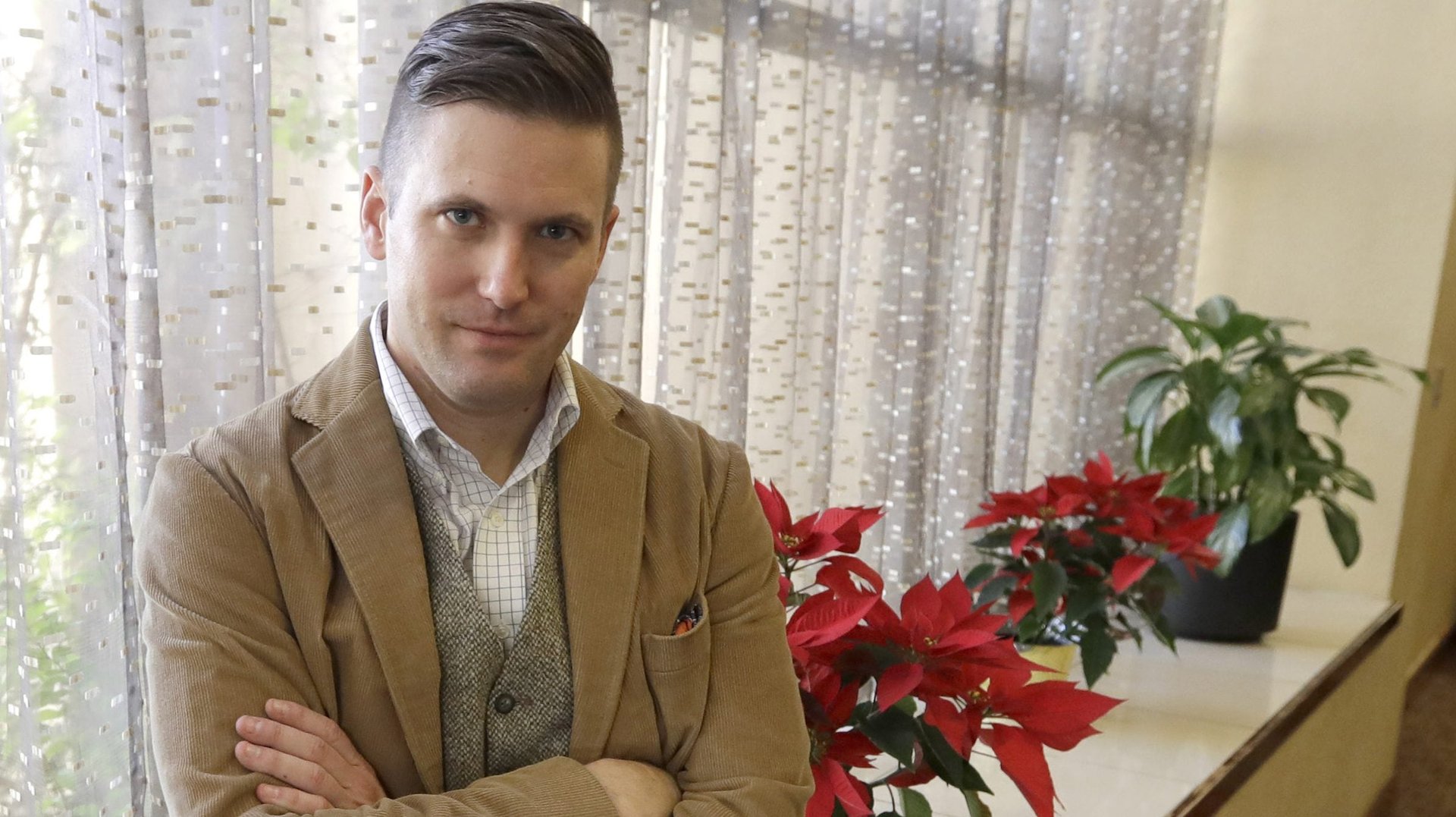The University of Florida is allowing Richard Spencer to speak because it has to
White supremacist Richard Spencer is scheduled to speak this Thursday (Oct. 19) afternoon on the University of Florida’s (UF) Gainesville campus. The National Policy Institute, the white supremacist think tank Spencer leads, initially sought to rent space on the UF campus on Sept. 12, shortly after the Charlottesville attack, but the request was denied on the basis that unrest similar to what had just happened in Virginia might also occur in Gainesville, threatening public safety there.


White supremacist Richard Spencer is scheduled to speak this Thursday (Oct. 19) afternoon on the University of Florida’s (UF) Gainesville campus. The National Policy Institute, the white supremacist think tank Spencer leads, initially sought to rent space on the UF campus on Sept. 12, shortly after the Charlottesville attack, but the request was denied on the basis that unrest similar to what had just happened in Virginia might also occur in Gainesville, threatening public safety there.
A few weeks later, however, UF had to capitulate: As the university explained in a Q&A published on its site, as a state institution, UF is not allowed to limit free speech—even when it is hate speech—and so had no choice but to rent space out for Spencer’s talk, or be in violation of the law.
Spencer is a highly controversial figure, and his prominence within the far right is possibly higher now than ever. On Oct. 7, he returned to Charlottesville to lead a white-nationalist march through the University of Virginia campus where the September incidents (which included the murder of a woman who was counter-protesting the white nationalists) occurred.
Kent Fuchs, the university’s president, said in an email to students that “If you are like me, I expect you are surprised and even shocked to learn that UF is required by law to allow Mr. Spencer to speak his racist views on our campus.” In the same note, which he shared on his Twitter account, Fuchs has urged the school community to restrain from animated protests, in order to reduce the spotlight on Spencer and the event.
But protests are gearing up anyway. As of Oct. 16, 2,700 people have said they will be attending demonstrations organized by the Facebook page “No Nazis At UF,” and another 7,200 have expressed interest in doing so.
This led Florida governor Rick Scott to declare a state of emergency in Alachua county, where the campus is located. According to UF, the declaration is not necessarily an indicator of a heightened threat, but does allow different agencies—such as the UF and Gainesville police departments, the Alachua County Sheriff’s office, and agencies providing first responders—to mobilize and work together more easily should the need emerge. Further, said Janine Sikes, a UF spokeswoman, it will make it easier for the university to recover the estimated $500,000 that UF and the other agencies involved will spend to enhance security in the city as well as on campus.
UF legally has to host the event, but it doesn’t have to facilitate it, and the National Policy Institute will independently handle tickets and logistics. However, though UF can force Spencer and his group to pay for security for the event itself (likely included in the $10,564 fee the university says it is charging in this case), additional indirect security costs fall to UF. That’s due precedent set by a 1992 Supreme Court decision stating that the costs of controlling reactions or protests surrounding an event cannot be charged as a security fee.